Trying to get a handle on your debt can be overwhelming. With countless methods and confusing terminologies, it’s easy to feel more lost than when you started. We’re here to help you determine where to start and which debt repayment strategies will work for your lifestyle and situation.
Whether you’re struggling with medical debt, credit card debt, or any other debts you want to pay off quickly, Balance Credit has the tips to regain your financial freedom.
Assessing Your Debt Load
The first step in choosing a strategy to get out of debt is understanding how much you owe compared to your income. This is called your debt load. Depending on your debt load, you can then choose the repayment strategy that’s most efficient and will work with the kind of debts you have.
It is possible to have too much debt. Use a debt load calculator to determine your debt-to-income ratio and whether personal budgeting strategies or debt relief options are right for your situation.
Quick Tips for Paying Off Debt Faster
- Pay more than the minimum payments
- Make payments more than once a month
- Focus on your most expensive loan first
- Track your bills and payment schedules
The Most Common Debt Repayment Strategies
Snowball approach
This debt repayment method works by focusing on eliminating your smallest debt first. Followed by applying that monthly payment toward the next smallest debt. The idea behind this strategy for getting out of debt is that it helps build momentum or “snowballs” your payments as things are paid off.
Avalanche approach
This method is similar to “snowballing” but focuses on paying off debts based on interest rates. The steps are the same, but focus on the debt with the highest interest rate first. Once that debt is paid off, you can put that money toward the next highest interest rate.
Which is right for you?
These approaches to getting out of debt help with organization and allow you to make higher payments on the targeted debt.
For these strategies to be effective, you should:
- List all your debts from lowest to highest balance or by highest to lowest interest rate.
- Put any extra money, without compromising your budget, toward the smallest debt or highest rate. Then, continue making minimum payments on the others.
- Repeat this process as each debt gets paid off.
Both options have pros and cons, depending on your goals. Whether you’re paying debts off faster or saving money on interest. Choosing between the snowball or avalanche methods depends on which best aligns with your financial situation.
When to Consider Debt Consolidation Strategies
If your debt load is too high for the above repayment methods to be effective, debt consolidation might be the right choice. This might also be right if you’re looking for the best ways to pay off credit card debt. Use a debt consolidation calculator to decide if this route is a good fit for you. Consolidation typically involves either a credit card balance transfer or a loan.
Debt consolidation can have many benefits. A few of them are:
- More time to pay back debts
- Lowering your interest rates
- More manageable payments
- Ability to get out of debt faster
Credit Card Balance Transfer
A balance transfer involves moving over the balance from a higher-interest credit card to a new account with a lower introductory rate. This gives you more time to pay off the balance without accruing the higher interest from your existing credit card. However, the lower interest rate will only last for a set amount of time, so this only makes sense if you can pay off this credit card before the rate increases.
Debt Consolidation Loans
A personal loan to get out of debt could be a good option if you’re dealing with multiple high balances that can’t be transferred, like medical debt or other loans. Debt consolidation loans make staying on top of payments easier by eliminating different payment schedules. You only have one payment to keep track of instead of several.
This option might be a good strategy if you’re worried about getting out of debt with bad credit. By streamlining your debt load, it becomes easier to manage and repay, so you avoid late fees and other penalties.
Debt Relief Options
There are several debt relief options to consider if your debt continues to accumulate. Even though these options won’t necessarily help you get out of debt fast, they might be the best option if you feel overwhelmed by your debt load.
Debt Management Plans
In order to take advantage of this option, you’ll work with a credit counselor or agency. This type of debt relief typically allows you to pay off unsecured debts in full at a reduced interest rate or with no fees. You make a singular payment to the counselor or agency, and they distribute the funds between your creditors. It’s important to note that missing a payment may render you ineligible for the plan.
Enrolling in a debt management plan doesn’t affect your credit score directly, though your credit cards will be closed, which can affect your score. The benefit of this kind of debt relief is that once you’ve finished the plan, you may be able to apply for credit again.
How Balance Credit Can Help You Get Out of Debt Fast
We understand that managing debt can be difficult, especially if you’re struggling with how to get out of debt with bad credit. If you’ve decided that a personal or debt consolidation loan is the right strategy to help you get out of debt, then Balance Credit may be able to help. Balance Credit provides loans that don’t require collateral and offers an online application process that can be completed from the comfort of your home.
Check out our FAQs to learn more about our application process and how quickly you could receive your funds. With a little help from Balance Credit, you can start your journey to financial freedom and feel in control of your finances.
*The information contained in this post is for general educational and informational purposes only. It is not an offer of credit, does not fully describe the products that we offer or facilitate, and it is not specific to any individual. These products are an expensive form of credit, and you should ensure that they meet your unique financial needs. We are not a credit repair organization and make no representation that we or any loan will improve or attempt to improve your credit rating. We do not provide financial advice or assistance regarding your credit situation. These educational posts are not a substitute for individualized professional advice.







